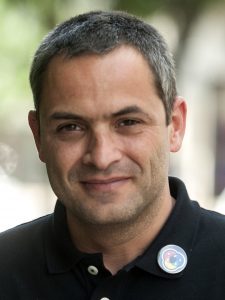Creator of ColorADD, the color alphabet for colorblind, a universal and inclusive language, which allows the inclusion of about 350 million colorblind people around the world.
ColorADD code was developed based on the three primary colors, represented by graphic symbols that, combined according to the basic concept of adding colors, allow the colorblind people to identify all colors whenever color is a factor of identification, orientation or choice.
Through co-creation models, this language is already implemented in several countries in different sectors of society, promoting the inclusion of colorblind people.
Also created a non-profit organization, ColorADD.Social, who promotes a set of actions carried out in Primary Schools to extend this code to education, allowing the inclusion of colorblind children without discriminating.
Sessions
-
June 05: Diversity in motion: Meeting the current and future needs of passengers
ColorADD in Metro do Porto: From the Vision to the Mission of Inclusion by Color in Public Transport
There are 350 million colorblind people worldwide: In a global world where the information is done through color, the color identification is relevant for those who use public transport networks, where more than 50% of the users use color as the first identification factor in network diagrams. Metro do Porto has always sought to implement the most diverse accessibility solutions, both at the physical level of the infrastructure and at sensory level, including the provision of information to passengers. In view of these operating assumptions, Metro do Porto adopted the ColorADD color identification system for the colorblind, becoming the first entity in the transport sector worldwide to be inclusive by color. ColorADD is a color identification system, an universal and unique language that allows the colorblind to identify colors. Internationally recognized, this language is implemented in diverse sectors of society, promoting integration and social inclusion of colorblind. Include without discriminating!

